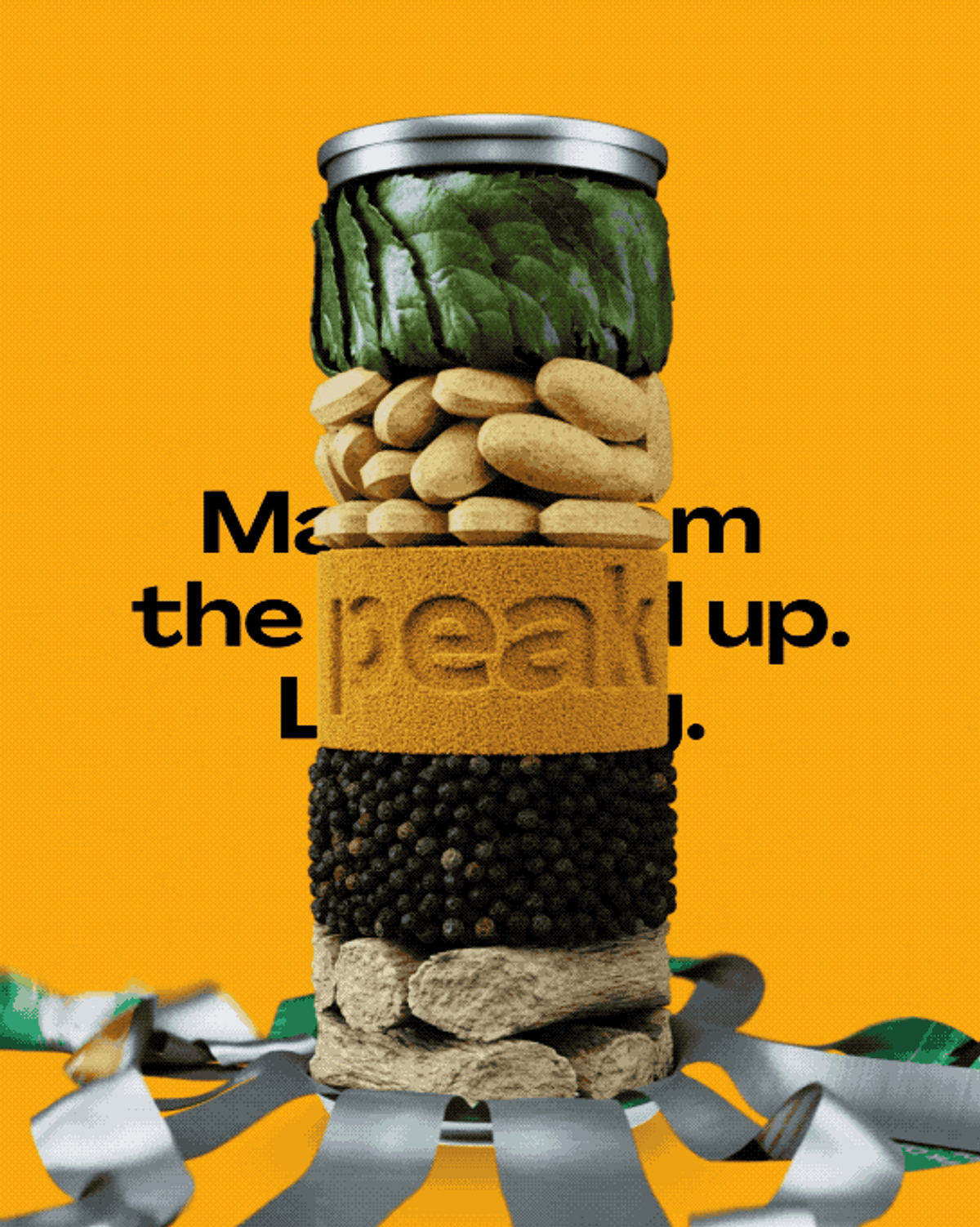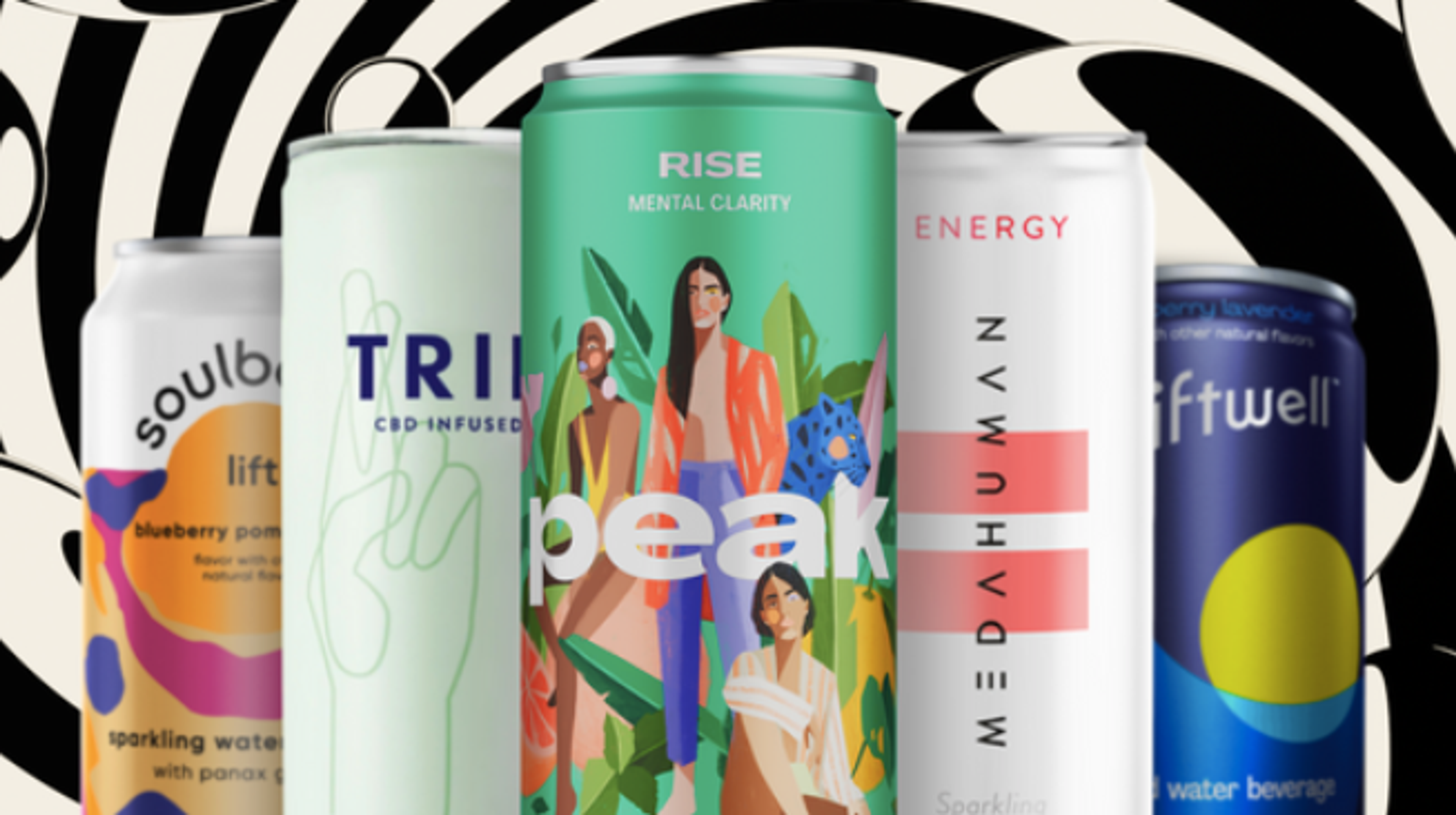Covid, the rise of wellness and the birth of brain boosters

NEVERBLAND®
07.09.2022

In case you missed it, the whole world has shifted. The unfathomable impact of a global crisis has forced many of us to reconsider our priorities. Together, as we navigate Covid, you’ll be hard pushed to find someone who hasn’t suffered the pressure of lockdowns, restrictions and this newfound anxiety as the world reopens.
One silver lining we should all find solace in is the increasing interest in more conscious living. Specifically, it’s unearthed a new mindset of ‘health above all else’ and, perhaps most significantly, mental well-being for Millennials and Gen Zs.
Prioritising Health in Life After Covid
Due to the general health anxiety that’s arisen out of the pandemic, it’s clear we’re becoming more conscious of what we consume and what we purchase. Recent research from FMCG Gurus found that 59% of consumers from around the globe are now more aware of their overall health and well-being. In addition, 73% state that they plan to eat and drink better because of it.
Similarly, according to research by the Grocer and Strategy& (PwC), 29% of UK consumers have made changes to their diet and health since March 2020. Although we’ve seen a spike in comfort eating and snacking, there is a heightened consciousness around healthy food and drink and interest in alternatives to sugar, alcohol, and energy.
Conscious consumption is highest amongst the Millennial and Gen Z demographic, with 17% of 18–34-year-olds changing their diet for environmental and ethical reasons. Since March 2020, Gen Z consumers have made the most significant changes to their diets, with 36% of respondents to The Grocer and Strategy&’s survey revealing they’ve made a dietary change, compared with 28% of 35-53-year-olds and 24% of over 55s.
Championing Mental Well-Being
As Covid health anxiety mounts on top of back-to-work stress, the importance of mental well-being amongst younger adults has snowballed. Millennials and Gen Zs are now championing the fight for better mental health awareness in the workplace.
At the beginning of 2021, Deloitte Global surveyed almost 23,000 Millennials and Gen Zs from 45 countries. The pandemic has increased the stress and anxiety levels that they feel, with the workplace being one of the most significant contributors. Despite high-profile conversations of mental illness and more public discussion in recent years, Deloitte’s research has revealed that Millennials & Gen Zs are still reluctant to discuss their mental health at work. They’re incredibly hesitant to vocalise increased stress due to the pandemic because of lingering stigma. The research shows that 49% of millennials and 47% of Gen Zs have been absent from work due to mental health but have given their employer an alternative reason.
Instead, they continue to prioritise and practise positive mental well-being in their own spaces. By taking a self-soothing approach to mental wellness, they’re seeking out new self-care rituals; this includes healthier diets and reducing their intake of sugar, alcohol, and caffeine.
The Rise of Adaptogens & Nootropics
New life pressures coupled with a heightened health awareness has left younger consumers looking for more holistic, nutritious ways to meet their needs and support their lifestyles. Two increasingly popular phrases you may hear popping up in the bid to tackle these new consumer challenges are adaptogens and nootropics. And thanks to the origins of these all-natural, plant-based ingredients, they come without the usual and sometimes nasty side effects that you might expect from their synthetic counterparts.
Adaptogens are ancient plants and herbs that can enhance our resilience to stress by regulating our bodies natural response and controlling the release of cortisol. Adaptogens differ from nootropics as they offer benefits that are spread throughout the body, targeting three bodily systems: nervous, immune, and endocrine.
Nootropics, aka ‘brain boosters’, are naturally occurring substances that enhance our cognitive function, mood, memory, creativity, motivation and attention. They do this by encouraging blood circulation and carrying extra oxygen to the brain. Simultaneously, they’ve been known to reduce inflammation in the brain whilst also protecting it from toxins. In addition, nootropics stimulate the release of neurotransmitters, a chemical messenger activated by brain cells, triggering dopamine and serotonin release (the happy hormones).
The terms adaptogen and nootropic are often used interchangeably, and although there can be a crossover, their primary uses are different. Nootropics aim to enhance brain health and cognitive performance, whereas adaptogens support stress relief. As we look to navigate our way out of a post-pandemic world, it makes sense that Millennials and Gen Zs are starting to opt for an all-natural, plant-based way to regulate their mood and energy that is both ethical and enjoyable.
Functional Food and Drink for the Win
Next-gen food and drinks brands in the US are already garnering a considerable amount of attention from health-conscious consumers. Using functional ingredients, brands a creating a wave of better-for-you alternatives with additional benefits, from ashwagandha spiked cereal to collagen-infused cookie dough and nootropic enhanced social drinks.
At Peak, we’ve spent the last 24 months developing the UK’s first mood enhancing drinks. A plant-powered, mood-boosting soft drink designed to help you think clearer and feel better. Dubbed ‘the fuel for the creative generation’, Peak values health over hangovers, authentic connections over hazy interactions and puts the fun into functional.
With only 32 calories, low sugar and naturally occurring caffeine, Peak combines functional ingredients for a whole-body experience. Adaptogens to wash away stress, nootropics to boost brain function and botanicals for the taste buds. At Peak, we anticipate a similar boom in new brands developing functional foods for this new generation of consumers. For now, though, Peak is available to buy in packs from our web store here and lots of café’s, deli’s and health food stores. As we evolve Peak will also be available as a digital product.
This Article was guest written by Louie Syred Co-founder of Peak
Related articles

Reaching your Peak Potential
4 min read


